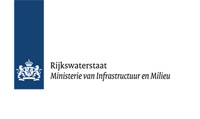University of Groningen and Rijkswaterstaat sign cooperation agreement

On 1 March a new cooperation agreement on sustainable spatial planning and infrastructure was concluded in the Groninger Museum between the Faculty of Spatial Sciences of the University of Groningen and Rijkswaterstaat, the executive arm of the Dutch Ministry of Infrastructure and the Environment. Over the past five years both organizations have collaborated successfully in the ‘Duurzame Wegen’ (Sustainable Roads) programme. The new agreement is also for a five-year period.
Working together will cater to Rijkswaterstaat’s need for scientific knowledge, highly trained students and PhD students who are aware of existing practical issues. Knowledge must be processed and renewed in order to successly fulfil the tasks at hand, a process that to a great extent follows from the everyday challenges the work entails. Practical knowledge enables Rijkswaterstaat to improve service to users of the main roads and waterways. This not only concerns knowledge related to the current situation, but also to the future – and seen in light of Rijkswaterstaat’s ambitions.
Thanks to the cooperation, the teaching and research of the Faculty of Spatial Sciences will be able to better reflect the needs of society to an even further extent. In addition to a number of PhD research projects, in the past five years the programme has also provided advice and contributed to education and the international exchange of knowledge, which is set to continue under the new agreement.
Planning for major infrastructure projects has become more and more extensive over the years, with support, costs, time investments towards study and efficiently realizing goals becoming more and more complicated. In recent years, both parties have therefore worked towards more sustainable planning of highway infrastructure in particular, contributing towards better practice.
Three research lines have been defined for the coming five years:
- Redevelopment of infrastructure from a junction and area perspective
- Planning and redevelopment of dry and wet networks
- Spatial transformation, accessibility, liveability and network implications
The results of five years of cooperation and a preview of the next five years can be consulted on the Sustainable Roads programme website.
See also: Rijkswaterstaat
| Last modified: | 06 September 2021 1.29 p.m. |
More news
-
23 April 2024
From battling against the water to living with the water
Margo van den Brink, associate professor of Water and Planning, says that we should adapt our spatial design to the changing climate. This implies difficult choices have to be made because the space is limited and the needs are great.
-
16 April 2024
UG signs Barcelona Declaration on Open Research Information
In a significant stride toward advancing responsible research assessment and open science, the University of Groningen has officially signed the Barcelona Declaration on Open Research Information.
-
16 April 2024
Investors consider region a risk
Investment in real estate appears to be an important explanation for the gap between big cities and the region, argues Michiel Daams, associate professor of Economic Geography of the Real Estate Market. He conducted research on investments in the...
